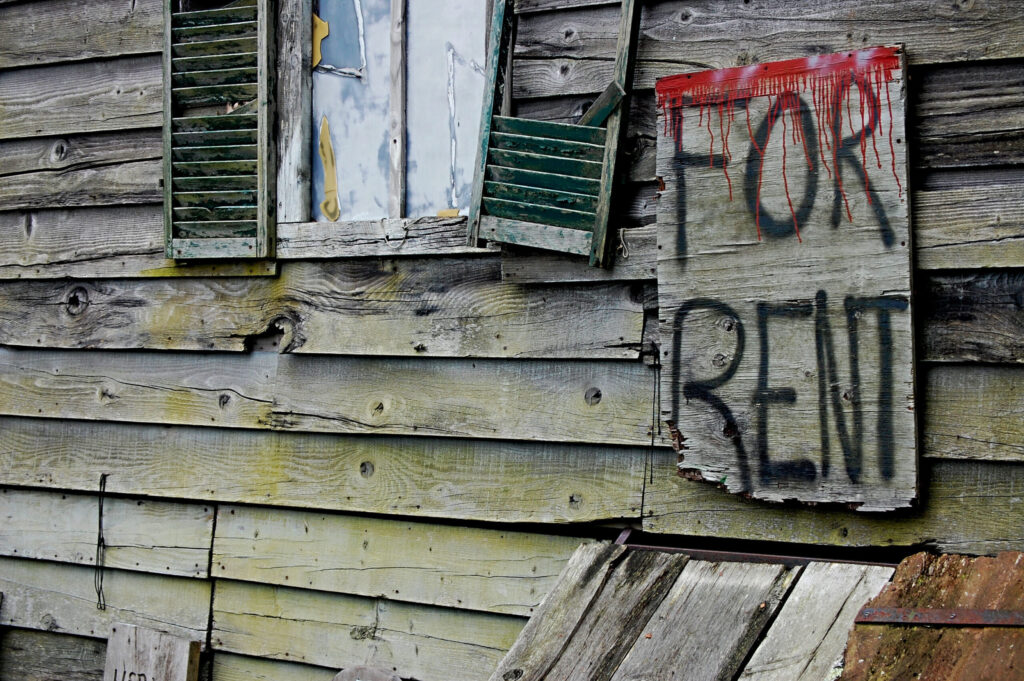Letter: An Open Letter to Amherst Landlords

Photo: Ken Solo for Shuttestock
The following email (with minor revisions) was sent directly to a landlord of a property on my street after an appeal to the town went largely unheeded. Unfortunately, the situation referenced is becoming increasingly problematic around town. Enforcement of rental property regulations is, at best, fraught with difficulties and frustration. While the town has web pages allocated for reporting problems related to rental properties, (and to roads and streets), complaints are too often met with the same reaction, i.e.: bupkis. Many student tenants are either unaware of regulations, or are unwilling to jeopardize there status as renters by filing complaints. Web page reporting forms and well-crafted state and local regulations are meaningless window dressing unless there is follow-up, and the follow-up of property complaints requires adequate funding, and staff who are willing to engage with obstreperous landlords or shadowy LLC’s and impose sanctions as stipulated in Amherst’s regulations to impell the correction of violations.
Dear (landlord),
We recognize the right to invest in rental properties. Moreover, the tenants in the last couple years have for the most past been respectful, peaceful residents of the neighborhood. But home owners in the vicinity of your property at (insert the address here) are growing alarmed at the continuing deterioration of the house itself.
Specifically, we have special concerns around the worsening rot around many of the 65 year old windows, which are now no longer weather-tight and allow for the entrance of water and pests; the peeling paint, especially at the rear of the building; the holes and damage in siding, facia and trim that indicates possible insect and/or vemin infestations; the termination of trash collection services (as evidenced by USA waste haulers recently removing their bins); and the overgrowth of vegetation and the presence of a fire pit in the rear of the building. At least some of these issues are probable violations of the MA state health and building codes and/or Amherst’s Rental Property Regulations, and they are reducing the potential resale value not just of your property, but the neighbors’ as well.
We ask that you put yourself in our position and consider what is fair and prudent in terms of responsible property management. The town of Amherst is facing a decline in its reputation as a desirable community in which to live, and the proliferation of deteriorating student rentals is a large part of this problem.
Thank you for your time and consideration of this matter.
John Varner
John Varner is a resident of Amherst’s District 3.

Some resources for aggrieved tenants and neighbors:
https://www.amherstma.gov/DocumentCenter/View/43664/Tenant-Information-Sheet-updated-31518
https://www.mass.gov/guides/the-attorney-generals-guide-to-landlord-and-tenant-rights.
And these sections from the MA state health code:
410.500: Owner’s Responsibility to Maintain Building and Structural Elements
(A) Every owner of a residence shall maintain all buildings and structural elements in
compliance with accepted standards so they are in good repair and in every way fit for the
intended use, including:
(1) Protected from wind, rain and snow, and are watertight, free from excess moisture or
the appearance of mold, and pest resistant; and
(2) Free from holes, cracks, loose plaster, or defects that render the area difficult to keep
clean, create an injury risk, or provide an entry or harborage for pests.
(B) In the event of leaks and flooding, the owner shall ensure all surfaces have been dried
within 48 hours from the time they are notified or the end of the event, whichever is sooner.
410.530: Weather-tight Elements
(A) An exterior openable window shall be considered weathertight only when:
(1) All panes of glass are in place, unbroken and properly sealed;
(2) The window sash opens and closes fully without excessive effort; and
(3) One of the following conditions is met:
(a) The window sash is sufficiently well-fitted such that it minimizes the infiltration of
air or moisture and the space between the window sash and the prime window frame is
no larger than c inch at any point on the perimeter of the sash in the case of double hung
windows and 1/16 inch in the case of casement windows; or
(b) A storm window is affixed to the prime window frame in such a way as to minimize
the infiltration of air or moisture.
……….
(C) Building and structural elements shall be considered weather-tight when all cracks and
spaces not part of heating, ventilating, or air conditioning systems are sealed to prevent
infiltration of exterior air or moisture
(F) The owner of a residence, except for a homeless shelter, shall conduct an inspection of each
unit prior to a new occupancy to identify the presence of pests. Homeless shelters shall establish
pest management policies that include periodic inspection for pest infestation as outlined in
105 CMR 410.550(G).